Amplifying KAIROS partners: voices for human rights and gender justice on International Human Rights Day
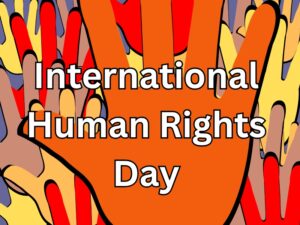
December 10 is International Human Rights Day, a day that commemorates the anniversary of the Universal Declaration of Human Rights.
It not easy to talk about human rights today, never mind celebrating it. The idea of the Universal Declaration of Human Rights as a global pledge that enshrines the inalienable human rights for everyone is becoming more remote. In his 2024 message, United Nations Secretary-General, António Guterres, declared: “Human rights are under assault.”
The institutions created for accountability and to protect human rights are being undermined at international, national and local levels. Impunity flourishes, allowing human rights violations to escalate. We are running out of words to describe what we are witnessing. Appalling, shocking, unprecedented, egregious – they all seem to pale when applied to the human rights abuses that countless people experience world-wide.
How do we talk about human rights when we are experiencing a “crisis of humanity?”
Where do I find the words to finish this blog? As usual I will turn to partners, human rights defenders, peacebuilders, Indigenous organizations, environmental groups, churches, migrant justice groups in Canada and globally who continue against these indescribable conditions to believe in human rights and to assist those in need, including the ecosystem, with humanity and dignity.
Today, also marks the end of 16 Days of Activism for Gender-Based Violence, which began on November 25, the International Day for the Elimination of Violence Against Women. Under the banner – Rise up against gender-based violence, KAIROS has been highlighting the work that partners in Canada and globally are doing to end all forms of gender-based violence GBV. For these organizations, networks and defenders who work with communities most affected by GBV, this is daily work. They work to support survivors, to defend women rights and gender justice and to demand accountability through advocacy.
Throughout the 16 Days of Activism, we have highlighted global partners from South Sudan, DRC, Colombia, Guatemala, the Philippines and Palestine – peacebuilders, human rights defenders, and environmental organizations. In Canada, we have spot lit the work of Indigenous women’s organizations and their advocacy on MMIWGS+ and their calls to address violence against the land as GBV. We have focused on the work of several organizations that offer resources and education for newcomers to Canada. These partners offer hope by demanding an end to all forms of violence for everyone, including accountable, bold and nonviolent action. I turn to their words to complete this blog.
It is not possible to mention all the courageous, creative and feminist campaigns and messages that we received from partners in Canada and globally during this 16 Days of Activism, but I will highlight a few and the connections I see between the work to end GBV in Canada and globally.
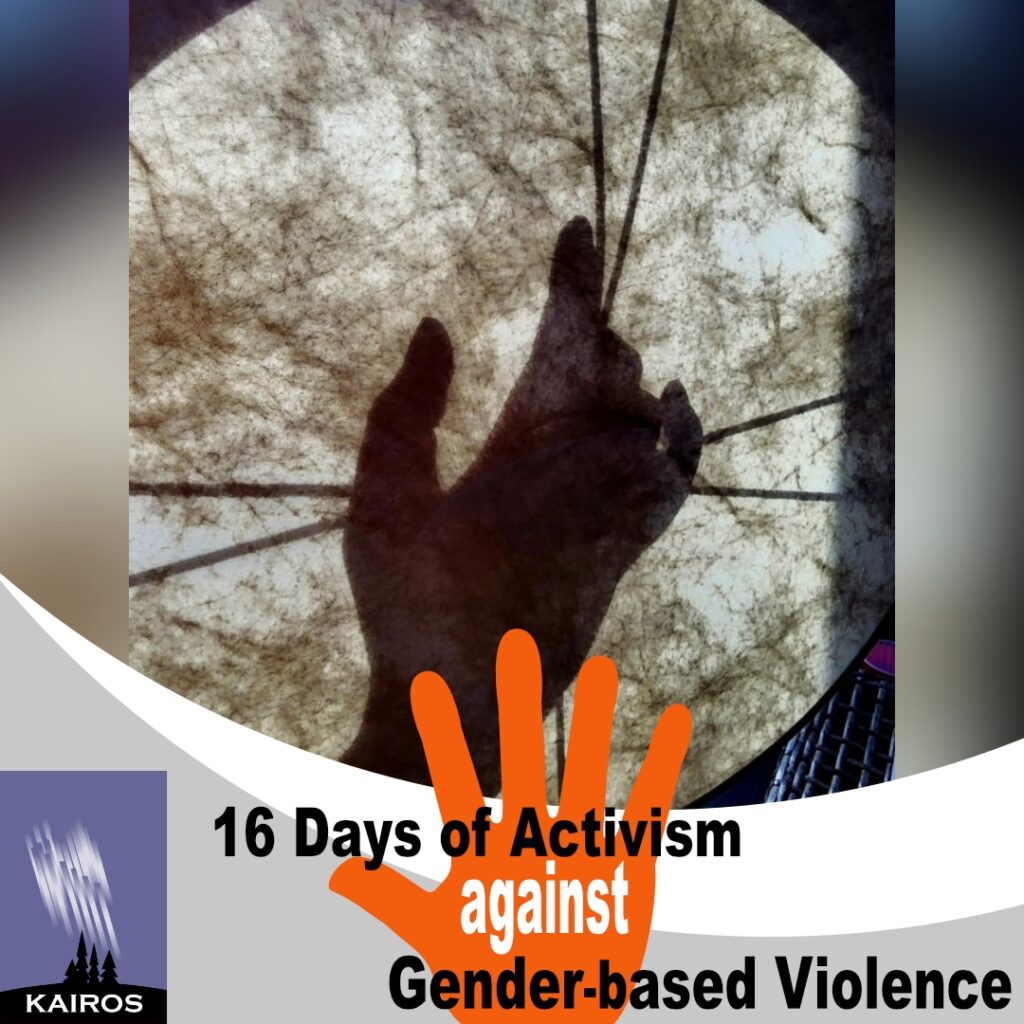
During 16 Days of Activism we amplified the call of the Native Women’s Association of Canada (NWAC) to recognize land justice and gender justice – violence against the earth is violence against women. NWAC is a national Indigenous organization that works tirelessly to defend the rights, deliver programming to, and amplify the voices of Indigenous women, girls, Two-Spirit, transgender, and gender-diverse people across Canada. NWAC writes:
“Indigenous women endure the burdens of colonization and recognize the injustices that are harming the earth and its people. Indigenous women have taken charge to protect the land, and their relationship with it, which places them at the forefront of environmental activism as they lead environmental movements against harmful actions of governments and businesses. Women need to be centered in conversations about environmental protection, climate change, and land stewardship so that the rights and livelihoods of Indigenous people are advanced over the capital gains of governments and industries.”
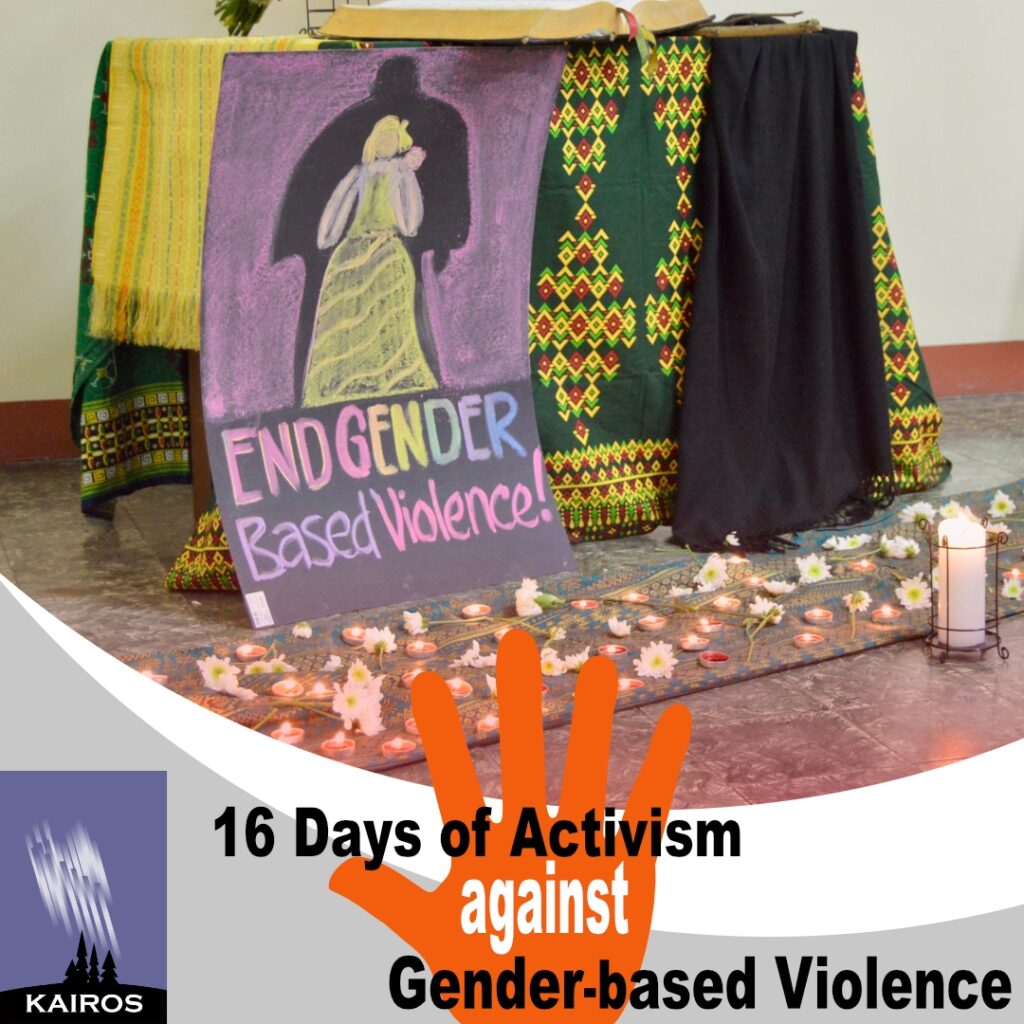
Global partners in Latin America, particularly Indigenous women, also experience this clear connection between violence against the land and against women’s bodies. The Latin American Network of Women Defenders of Social and Environmental Rights (la RED) uses a participatory exercise, Cuerpo- Territory (body-territory), using body mapping to collectively reflect on the impacts of extractivism on women’s bodies, and links between violence against the land and against women. During 16 Days of Activism, la RED honoured the lives of women defenders of Mother Earth who face persecution, criminalization, and death for protecting their territories. On November 25, they celebrated life, community, and the resilience of women fighting for justice.
As part of the 16 Days of Activism, Ontario Native Women’s Association (ONWA), highlighted the Ontario Indigenous Women’s Advisory Council‘s recent statement on declaring intimate partner violence an epidemic. The Council emphasized:
“To effectively address the violence experienced by Indigenous women, the solutions must come from Indigenous women, our organizations, and our communities. Municipalities and other jurisdictions must work with, and support, Indigenous women, their organizations, and communities to end the unacceptable levels of violence against Indigenous women.”
Global partners are also facing escalating GBV, including domestic and intimate partner violence, and advocating for political and legislative change. Under the theme, “Ending violence against women and girls in South Sudan,” the South Sudan Council of Churches used 16 Days of Activism to advocate for resources to establish safe homes for gender-based violence survivors, spreading awareness on GBV prevention, and calling on the government to pass the anti-GBV bill.
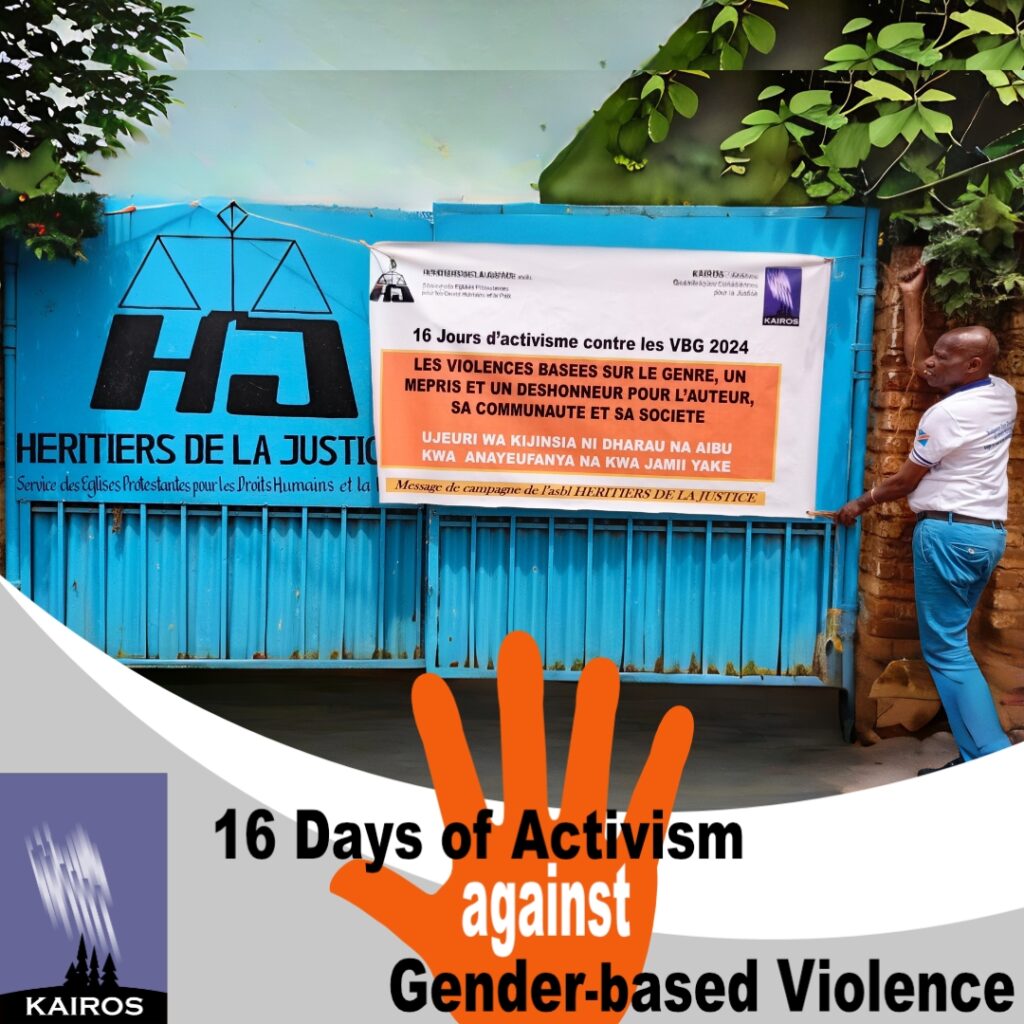
In Sud-Kivu province, eastern Democratic Republic of the Congo (DRC), a region that is facing extreme and growing violence, including gender-based violence, Héritiers de la Justice (HJ), works tirelessly to combat violence and pave the way for a just and lasting peace. HJ is at the forefront of Empowering Women Survivors and Engaging Men as Allies to end GBV. During 16 Days of Activism, HJ amplified this powerful message: “Gender-Based Violence: A Contempt and Dishonour for the Perpetrator, His Community, and Society.”
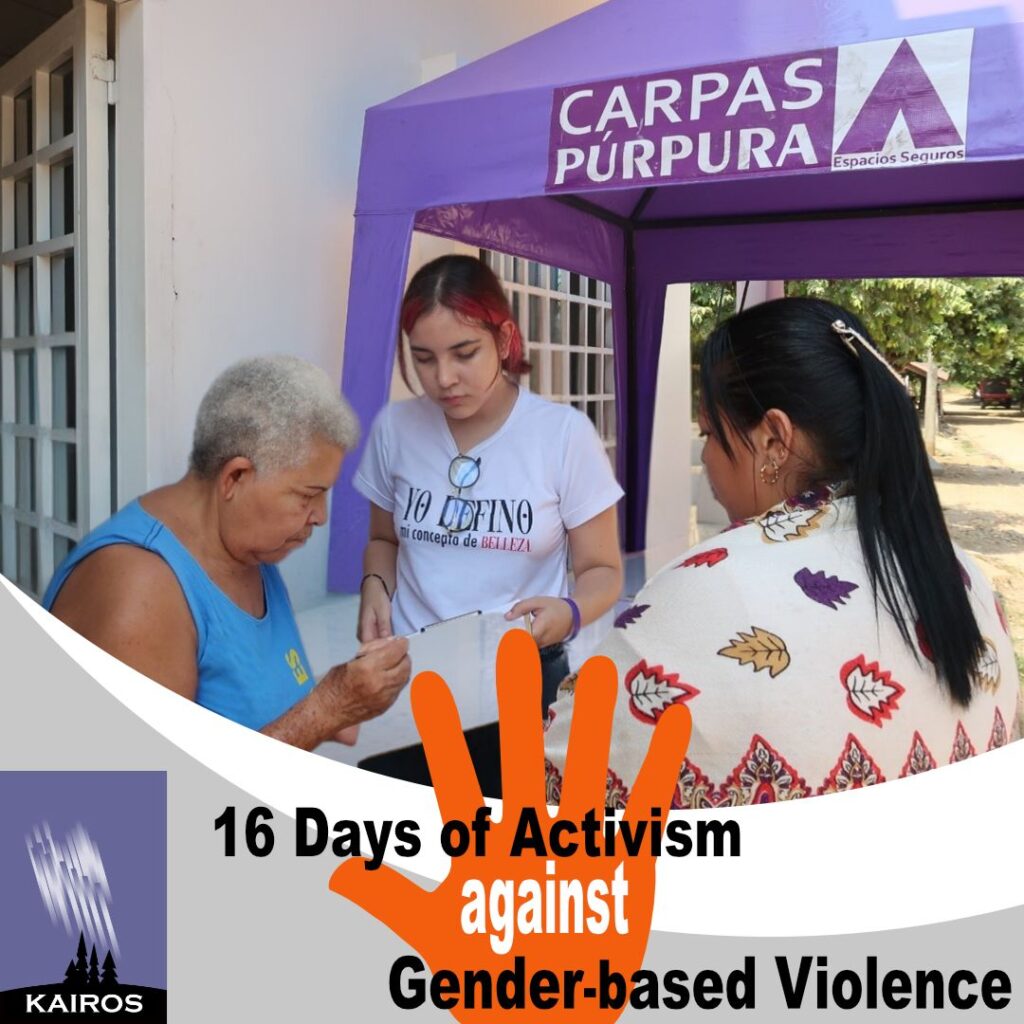
In Colombia, for more than 50 years, the Organización Femenina Popular (OFP) has been working with marginalized communities, providing women who are victims and survivors of all forms of violence, including due to war and GBV, with legal and psychosocial support. and human rights training. Their work helps the survivors regain dignity, create safe spaces and defend their rights and the rights of others. Many of these women become peacebuilders and human rights defenders themselves. During the 16 Days of Activism and every day, the OFP advocates for women’s rights and justice in Colombia in the face of GBV with creative, feminist strategies including Circles of Protection, which rebuild safety networks and prevent the escalation of GBV, and their Purple Tents, a program to spread awareness and offer psychosocial and legal support to survivors and victims.
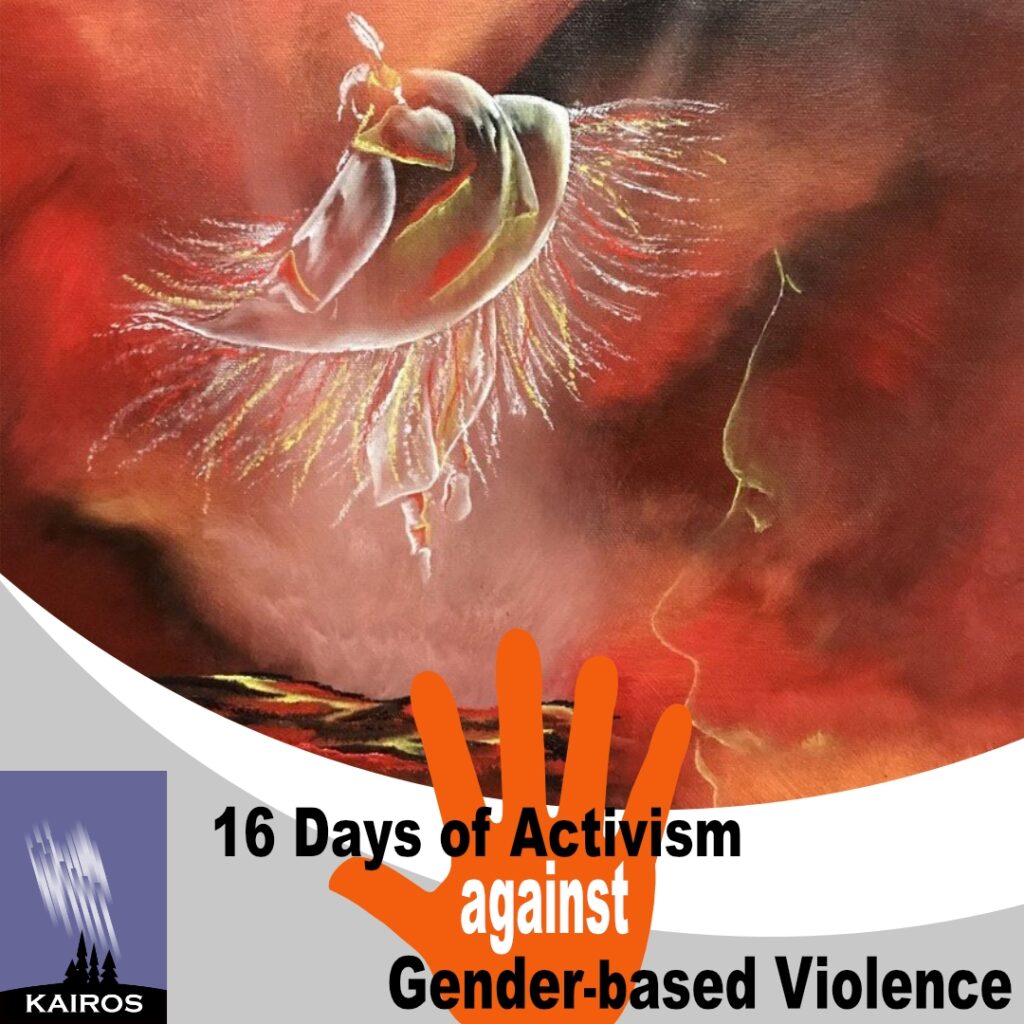
In his reflection, Justice for MMIWG2S! No more excuses! Connor Sarazin, KAIROS’ Interim Indigenous Rights Manager, writes:“Indigenous women, girls and 2-Spirit people are traditionally sacred as life and care givers. However, they are continuously devalued and the victims of violence.” The statistics are devastating, but they do not capture the humanity of those lost, like Karina Wolfe, Morgan Harris, and so many others. Only two of the 231 Calls for Justice from the National Inquiry into MMIWG have been completed. Canada must act with urgency and work with Indigenous leaders and organizations to implement the National Action Plan. Connor encouraged us to find out more about Camp Morgan where the fight began in December 2022 to bring awareness, support and seek justice in the search of the Brady Road Landfill in Winnipeg.
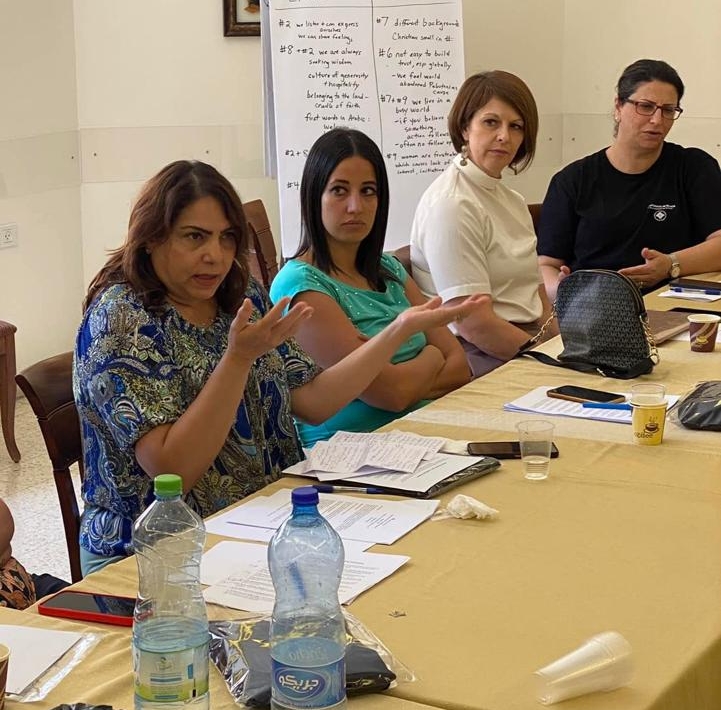
In her 16 Days of Activism blog, Hana Kirreh of Wi’am: The Palestinian Conflict Transformation Center reflects on the unique struggles of Palestinian women in war and under occupation.She writes:
“Palestinian women face multiple forms of oppression, colonial violence, patriarchal norms, and economic instability. Despite this, they continue to show immense strength, resilience, and activism in the face of hardship. Palestinian women are not just victims, they are leaders, activists, and advocates for a future free of violence and oppression.”
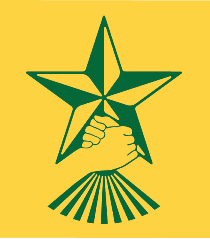
Wi’am continues to work to raise awareness and take action against GBV in Bethlehem and across the West Bank. The ongoing war on Gaza and the unprecedented violence in the West Bank have escalated GBV, and, at the same time, made it more difficult for Wiam to reach marginalized women and vulnerable groups. Yet, they continue to envision and work towards a society where every woman and girl lives free from violence.
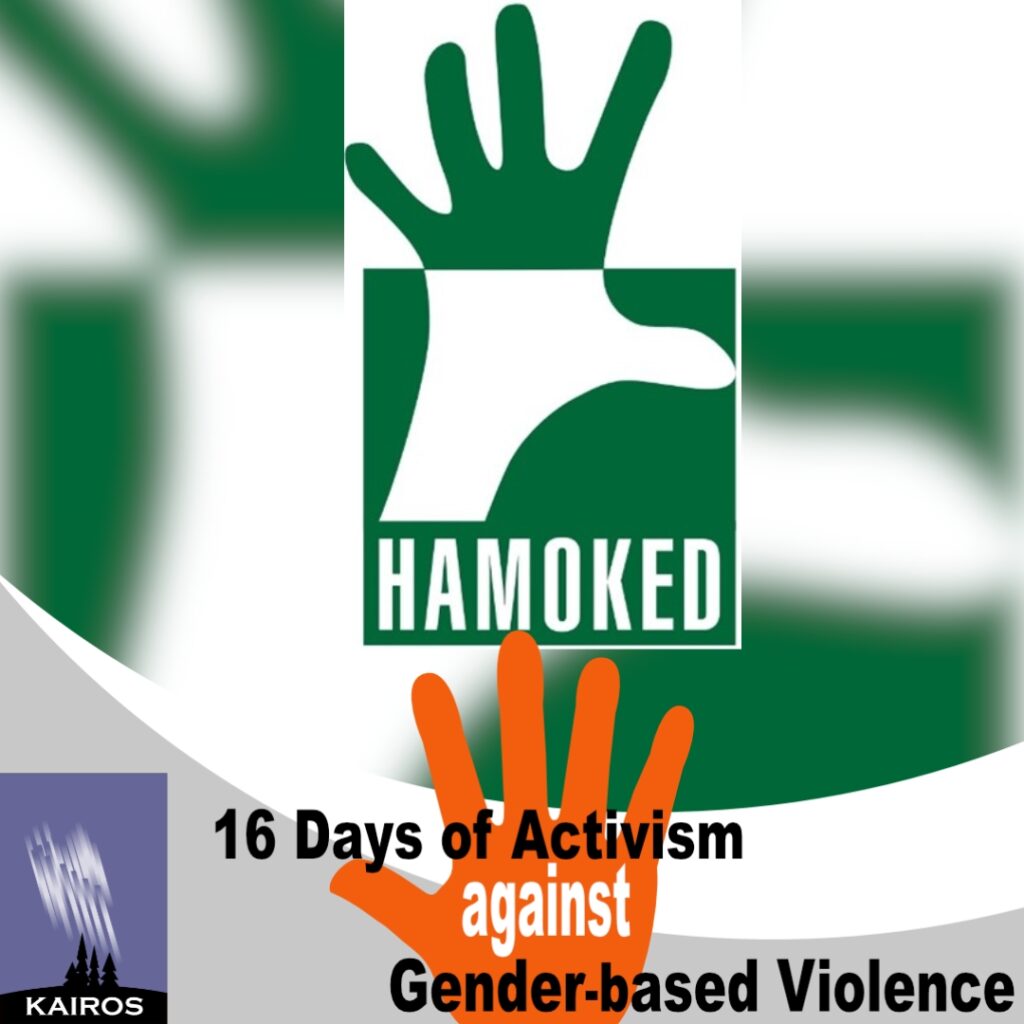

We also highlighted the work of Israeli human rights and peace organizations, Hamoked and B’Tselem. For years, Israeli Human Rights organization B’Tselem has helped Palestinian volunteers empower themselves to become video activists and citizen journalists, equipping them to document life under occupation. B’Tselem has intensified this work to document and expose the rising human rights violations and gender-based violence in the West Bank.

16 Days of Activism was also an opportunity to highlight the work by organizations that address the rising levels of gender-based violence experienced by migrant and refugee communities in Canada. Citizens for Public Justice (CPJ), a long-time partner of KAIROS, collaborated with World Renew and International Justice Mission Canada to create a powerful resource for 16 Days of Activism: A Community that Cares: A Reflection and Advocacy Guide for Faith Communities. On Day 9 the resource addresses the intersection of housing insecurity and trauma experienced by women and gender-diverse refugees fleeing gender-based violence.
This is a very small sample of the work that partners in Canada and globally are doing to raise awareness and to address gender-based violence. These organizations and groups are working in the face of indescribable human rights violations and in defiance of prevailing impunity to defend human rights, nurture dignity and end all forms of gender-based violence. They are offering the world tangible hope in their bold and feminist action. This International Human Rights Day, and beyond, let’s double down, listen and support this work and these calls with great urgency.
Alongside the many partners leading courageous change for human rights and gender justice, I find hope in knowing that so many individuals, through KAIROS’s networks and supporters, are joining us in amplifying their voices for change, through signing petitions, joining vigils and protests, and donating to make this work possible. It takes all of us, doing everything we can, to build this movement for justice and human rights.
By Rachel Warden, Partnerships Manager.
